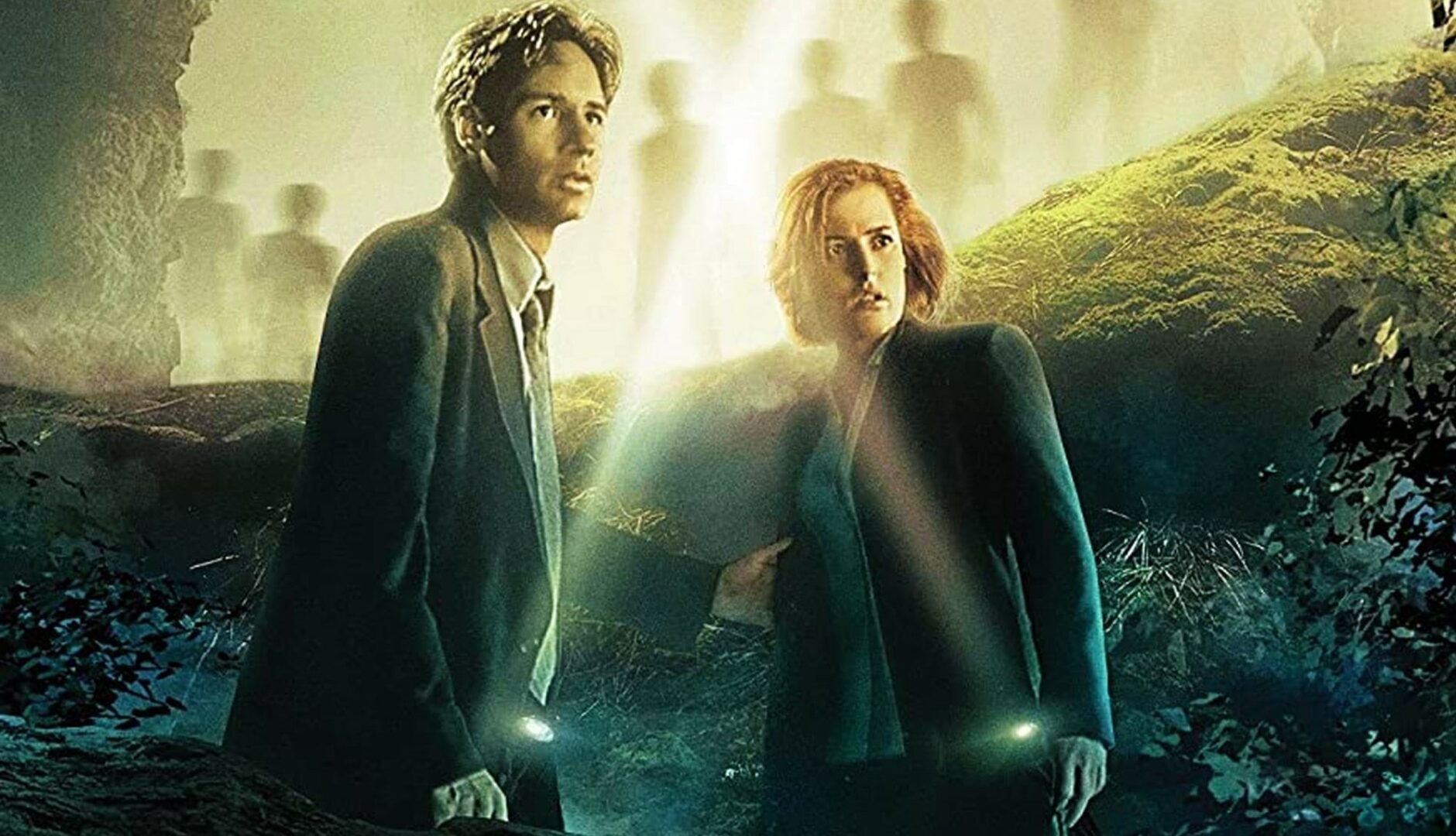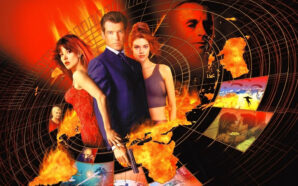The fourth season of The X-Files is dour. Season 3 may have expanded the tonal palette of the show but season 4 is content to wallow in one depressive mode. It’s a very dark season of television with little reprieve, giving focus to Mulder reckoning with his sister’s disappearance while Scully is diagnosed with cancer. There’s just the one comedy episode late in the run. This doesn’t necessarily mean bad episodes, it’s a solid season of the show, but when watching them all together it’s quite the exhausting task.
There are no Darin Morgan-scripted episodes this season and his comedic sensibilities are sorely missed. Thankfully the other Morgan brother, Glen, and his writing partner James Wong return to write four episodes after previously leaving in season 2. Their episodes all bring a very different energy and a willingness to mess with the formula. The other writers, not so much. Season four is home to some of the most unique episodes of The X-Files but also some of the most formulaic, too.
It’s during its fourth year when the show’s mythology reaches critical mass. Each additional mystery added weighs down the once engaging episodes. Now, when I get to a mythology two-parter, I release a long sigh and see it as a task to complete before I can get back to the show I like. The season is in something of a holding pattern. Chris Carter was gearing up for the movie, which was shot between the fourth and fifth seasons, and so the mythology progresses little. The episodes feel less like they are advancing the plot and more like they are retelling it. We get alternate versions of what we saw last season. Instead of France going after the black oil, now it’s Russia. We learnt about smallpox vaccines being used to catalogue people last season but now we learn about it again as if for the first time.
Best Character: Mulder. No, Scully! Wait, it’s Mulder! No, okay, it’s Scully!
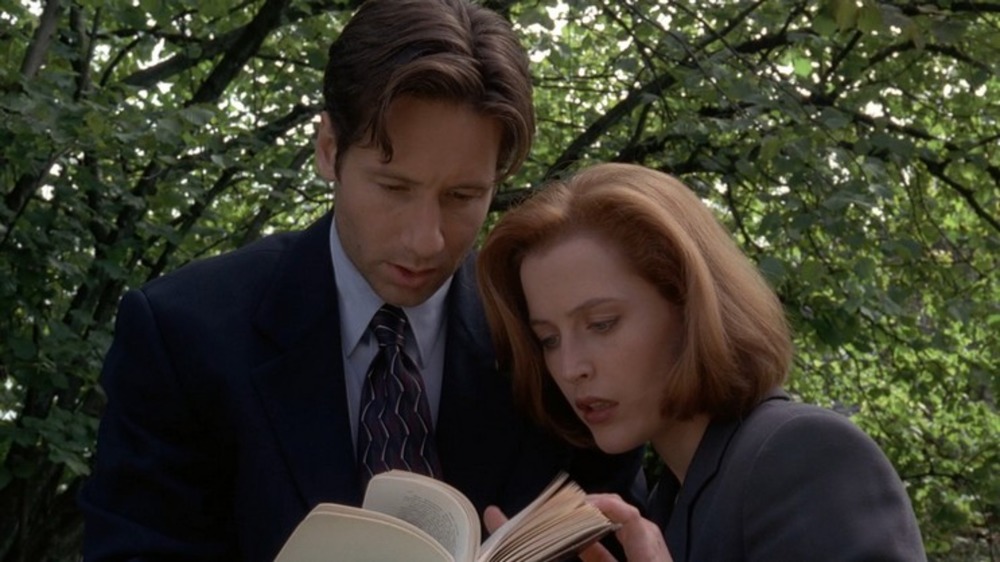
I don’t know if I can choose a best character. This is hard. Season four is the first season that treats both characters equally well. The show is now a well-balanced two-hander, although flipped from how it was in the first two seasons. Now Scully is better served by the mythology episodes while Mulder is the standout of the standalone episodes, with Paper Hearts being to Mulder what Beyond the Sea was to Scully in season 1.
The season demands the most of Gillian Anderson and she rises to the challenge. The back half is dominated by Scully’s cancer, which further adds to the season’s depressing tone, but it’s done well. It represents a consequence she has to face regarding her abduction; it’s not something she can just forget and now has to confront what happened to her, which is a good way to stretch out the drama beyond just the abduction itself. Never Again is an episode frustratingly close to being great but still gives us a different view of Scully as she examines her life in a manner usually left for Mulder.
Mulder is a more steadfast character this season, reacting to Scully’s predicament in the mythology episodes rather than being the focus himself. But Duchovny is given a couple of tremendous standalone episodes that reveal new layers to the character. The Field Where I Died is an episode I will defend as a misunderstood gem (more on that later), Paper Hearts offers insight into Mulder as a flawed detective, and even the comedy Small Potatoes has a point to make about Mulder’s personal life, or lack of one. Whereas Scully once had to prod Mulder to get him to question his beliefs, now the character is able to do that internally, leading to more interesting episodes.
Biggest Disappointment: Teliko (S4E3)
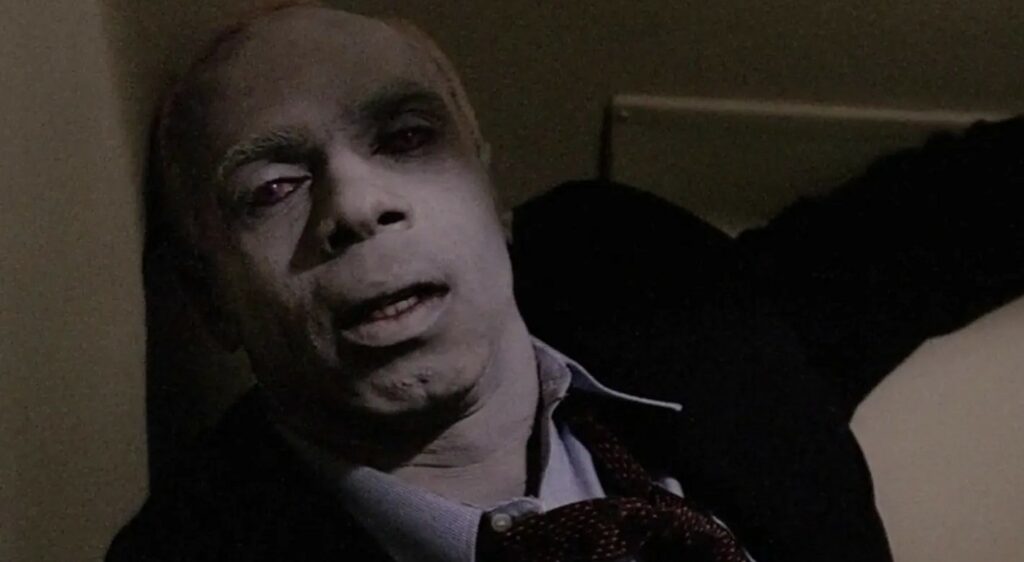
Writer Howard Gordan loves to examine ethnic communities in his episodes. For a nineties show, these episode have been remarkably unproblematic… until now. Fresh Bones and Kaddish are competent examples of Gordan’s style but Teliko falls flat. The premise of an albino black man sucking the skin pigmentation of other black men is certainly memorable, and weird, fun, and silly enough for an entertaining episode. The issue is, with a premise like that, Teliko should have been interesting.
Good interesting or bad interesting: making a point or flawed in a fascinating way. I’ll take either. But the episode we get is too scared and unsure of itself to attempt to say anything at all. Instead of being unique, it falls back on just aping previous successes. As if consuming melanin isn’t enough, the killer can also squeeze into small spaces. He becomes just another, lamer version of Tooms, an entirely different type of threat just because Mulder and Scully are too white to be in danger otherwise. The copy of season 1’s Squeeze is completed with a final fight in some air shafts. It’s painfully unimaginative.
Underrated Episode: The Field Where I Died (S4E5)
Never Again comes close but The Field Where I Died takes the cake. It’s a very different kind of episode that may not be the most rewatchable but is very refreshing on a series rewatch. It’s gentle and poetic but has a real sting in its tail that keeps it on the right side of pretentiousness. It’s a very structurally unique episode, too. It feels at once slow but I was also shocked when 45 minutes had passed and the credits rolled. It’s one of the four episodes written by Morgan and Wong and each have clear, definable ideas. The episode has something to say, is unique and focused, and not workmanlike like other instalments this season.
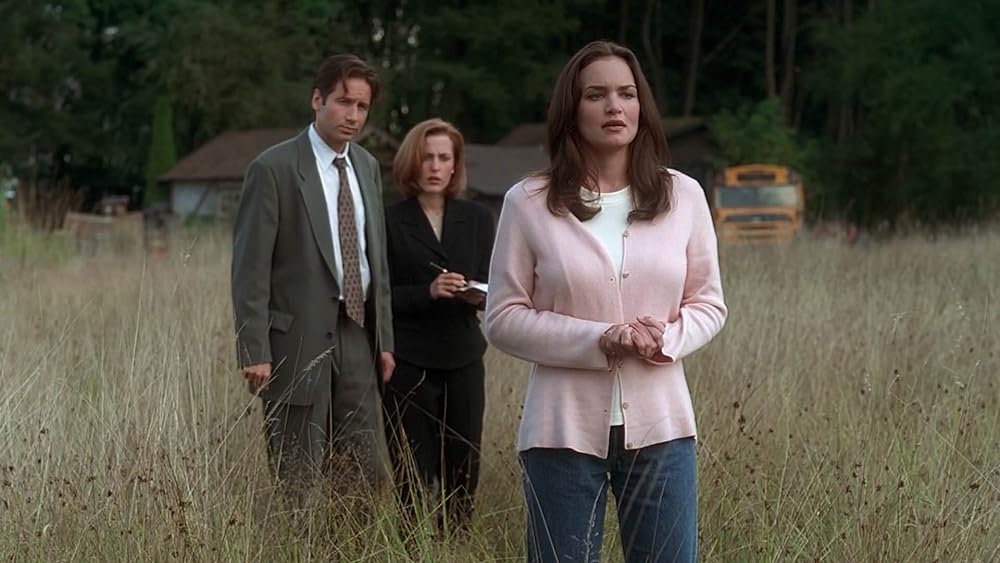
The Field Where I Died sees the agents raid a cult compound and Mulder grows obsessed with a woman, Melissa, who claims to remember her past lives, which include him. It has some minor issues, namely there are details that are too close to the Jonestown massacre and some of the Melissa’s personalities are cringey, like when she suddenly starts talking like Columbo. I can understand some people not liking the past lives idea. In fact, I don’t like it. But I don’t need to. Mulder buys into it and that’s the point. It’s an exposé, a character study, of just how willing he is to believe, how far down the rabbit hole he goes with the gentlest push. The episode is more interesting if it’s not true, but even if it is it still works. It’s a personal and tragic folly for Mulder. And I couldn’t care less if he and Scully aren’t soul mates throughout time like some fans do.
Biggest Missed Opportunity: Unrequited (S4E16) should have been a Skinner episode
The X-Files wants more Skinner. He’s a fan favourite appearing in so many episodes, yet often just replaying the same scene of a concerned boss chastising his employees. The past two seasons have dedicated episodes to the character but they’ve not quite worked. With Unrequited, the writers stumble onto a perfect episode for him to take the lead but seemingly don’t realise. The plot concerns former soldiers who hate the federal government, including one who can turn invisible and begins to hunt down his superiors. Skinner himself is a former solider who now works for the government. He should be the star. The killer could be a former friend in the army he thought dead. Skinner would be torn in his allegiance and question his identity and job. The episode we get works as a perfunctory standard investigation with Mulder and Scully but with Skinner it would have been deeper. The episode ends with Mulder telling Skinner about the killer, “With all due respect, sir… he could be you.” Exactly!
Best Guest Star: Chris Owens & William B. Davis as the Cigarette Smoking Man in ‘Musings of a Cigarette Smoking Man’ (S4E7)
Finally, the show is referring to the character as ‘The Cigarette-Smoking Man’ rather than the lamer name of ‘Cancer Man’. William B. Davis is an iconic element of the show and finding another actor to portray the younger version of the character is no easy feat. Thankfully, Chris Owens is great as a believable younger iteration. So great that he would return not only in this role but two further X-Files roles in the future. Playing a key role in the assassinations of JFK and Martin Luther King, Owens conveys the personal anguish yet ultimate resolve in his character’s decisions. And Davis is excellent as the older CSM, getting to stretch his acting muscles more than regular appearances. This more fleshed-out version of the character could just as easily feel like a different character as Owen’s younger version, but Davis retains enough of the original portrayal while offering a new vibe.
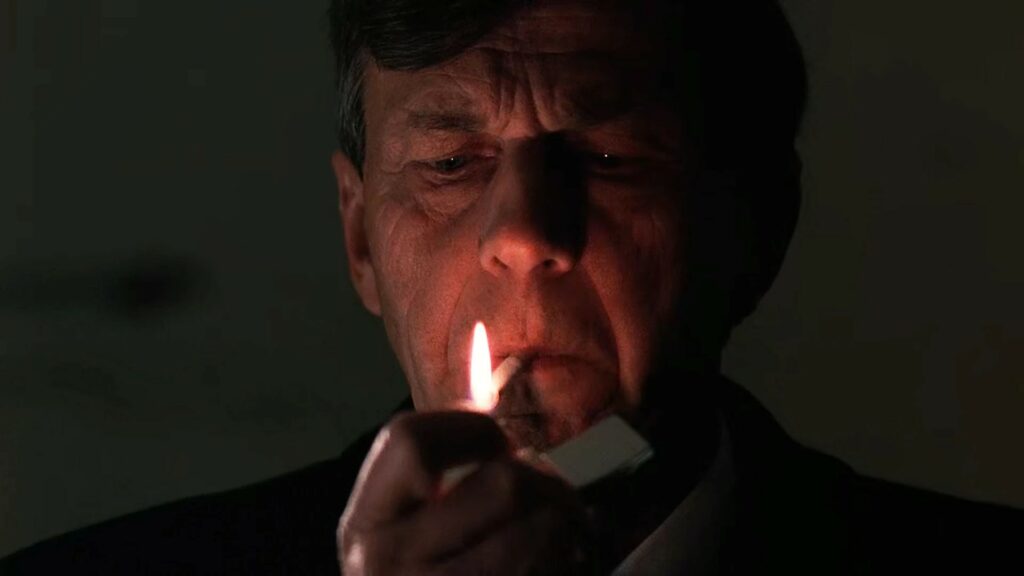
The Cigarette-Smoking Man we see in this episode is funny and sad and pitiable. I think that is the key: the episode doesn’t make you feel sympathy for the devil but rather pity. It’s an episode that could have easily gone wrong and destroyed a key element of the show but, somehow, it succeeds. Morgan and Wong manage to have their cake and eat it too. The episode is a cool character backstory, threading different conspiracy theories together, but it’s also a joke you can never take entirely seriously. The concept of the unreliable narrator, the lies mixed with the truth, is clear, whether in the heartbreak of King’s assassination or a Forrest Gump parody scene. The story can be funny but it never presents CSM as anything other than dangerous. The script nails it and the actors complete the precarious balancing act.
Best Monster: Leonard Betts in Leonard Betts (S4E12)
Leonard Betts is the creation of three writers and it shows in the best way possible. Three writers throwing everything they can into one monster. There’s no real plot to much of the episode, just the peeling back of layers of Betts, literally. We don’t even find out that he’s killing people until halfway through the episode. This isn’t just another hunt for a supernatural serial killer. Leonard Betts is interesting enough himself rather than having to focus on his crimes. He’s a ludicrous character but it works. A genetic mutant who eats cancerous tumours and can survive incredible injuries. His head gets cut off and he grows another in a bath of iodine. He even births a new version of himself from his own mouth. There are echoes of Eugene Victor Tooms but it’s still different enough. Betts is the first to sense Scully’s cancer and, in an interesting moment, his mother claims he’s on Earth for some great religious reason and maybe that’s alerting Scully in his own twisted way.
Unpopular Opinion: The Comedy Almost Ruins Small Potatoes (S4E20)
Don’t get me wrong, I like Small Potatoes. It’s the fifth best episode of the season. But it has one big issue. The episode acts as a baton-pass, with Vince Gilligan taking the role of comedy writer from Darin Morgan, who stars in this episode as shapeshifter Eddie Van Blundht but wasn’t involved creatively. After a season of depressing stories, it’s a delightful episode. The second half in particular is great. Eddie takes Mulder’s form and lives his life, leading to great comedy but also some insightful moments that put Mulder’s life into perspective for both the character and us watching.
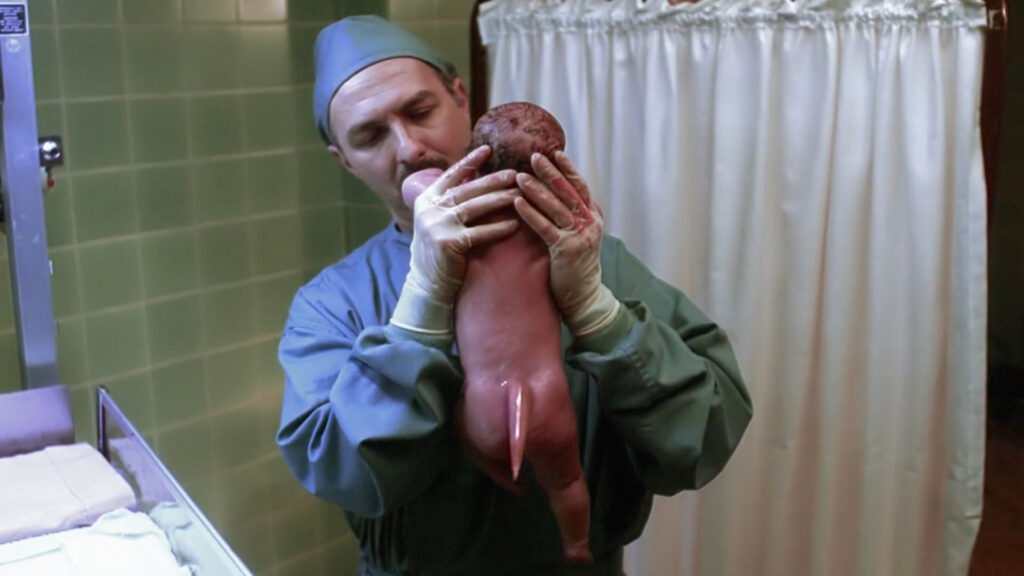
But the issue is that Mulder acts out of character in the episode he has to most be in character. To contrast against Eddie pretending to be him, Mulder needs to be the control variable. We need to clearly be able to tell the imposter from the actual Mulder. But because the episode is a goofy comedy from the start, Mulder isn’t his regular self. Every aspect is broadly comedic when really only Eddie should be. Immediately after we see Eddie take’s Mulder’s form for the first time, we cut back to Mulder in a morgue where he breaks off a corpse’s tail (yep, he has a tail) and then tries to hide what he’s done from Scully, balancing the tail on the body. It’s a joke that nearly destroys the whole episode. Mulder is acting so silly that I couldn’t tell if that was the real Mulder or the imposter, and that’s a huge problem.
The ‘What the Hell Did I Just Watch?’ Award: Home (S4E2)
I remember my first time watching Home. On the DVD you could choose which version to watch: with or without the baby crying as it’s buried alive. And that’s just the first scene. Writers Morgan and Wong returned to The X-Files with this episode and they brought some baggage with them. Fox had just cancelled their show Space: Above and Beyond and in their anger they wrote the all-time most disturbing episode of the show.
Home is more than just it’s reputation, however. Yes, it’s brutal, but it’s also surprisingly funny. Dark humour is peppered throughout and it’s also the first episode to discuss Scully as a potential mother, setting up a key theme of the show’s future. It’s also fairly conventionally plotted but what is unique is the visceral nastiness. It’s a perfect storm of horror. It has a dense atmosphere, aided by the fact it was a rare episode shot in the summer, and you can feel the oppressive heat and sun, giving it a totally different flavour. It’s shockingly bloody and violent for a nineties episode of network TV. The scene of the sheriff getting beaten to death while the blood seeps towards his hiding wife is horrible. There’s the subject matter of incest and deformities. And then there’s the song Wonderful! Wonderful!, which scores much of the horror, adding an incongruous tension, similar to the use of My Prayer in Twin Peaks.
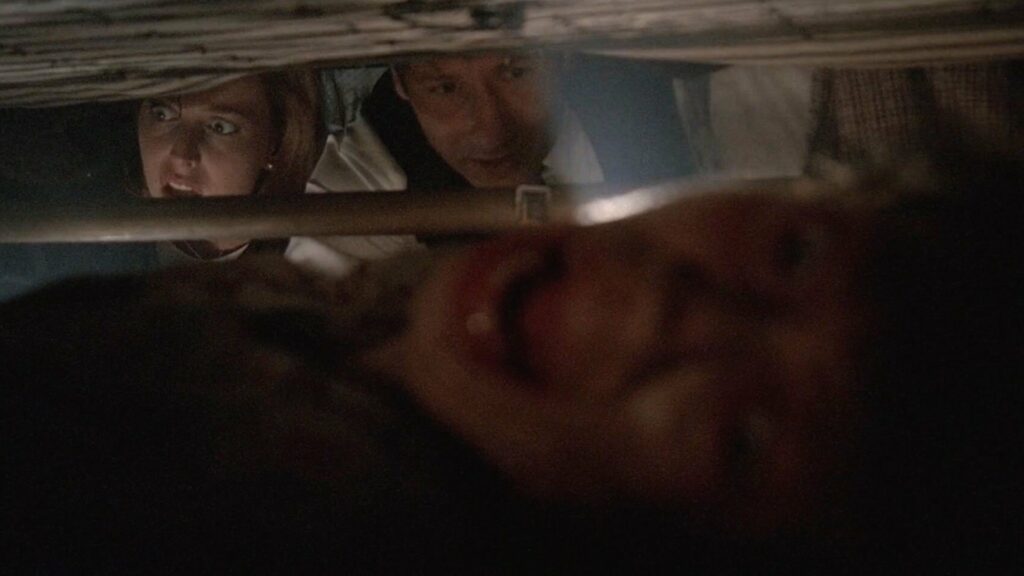
I wondered whether Home would hold up to my memories. Maybe it’s reputation was unjust. It was scary as kid, scary as an episode of nineties television, but still scary now? Yes. Yes it is. It holds up as thoroughly disturbing.
Worst Mythology Episode: Herrenvolk (S4E1)
Another season premiere, another worst mythology episode of the season. The third season finale is a solid episode that feels like a step forward for the mythos, with characters now openly talking about the government making deals with alien colonists when that was once only implied. The second half of the story, Herrenvolk, is a big step back. None of the questions from the first half are answered or even dealt with. They are forgotten immediately and instead the episode pivots to new mysteries. The extraterrestrial magic healing is pushed away and now suddenly it’s about bees and yet more clones of Samantha.
Herrenvolk pairs Mulder with Jerimiah Smith, an alien in human form, or at least a hybrid, who wants to expose the Syndicate’s plan. That’s right, Mulder on a road trip, driving for hours, with an alien. They should have a lot to talk about! But instead Smith speaks vaguely and just teases things because it’s a TV show and it needs to have mysteries despite there being no logical reason why he wouldn’t tell Mulder everything. Meanwhile Scully’s subplot has her ‘discover’ information about the smallpox vaccine which she already learnt in the last season premiere. Worst of all is X being unceremoniously killed off and immediately replaced by another informant, Marita Somethingorother. Everything is just running in place, following story beats we’ve seen many times before.
Best Mythology Episode: Max (S4E18)
The show’s mythology is in a holding pattern in season four but that is actually a benefit for Tempus Fugit and Max. The two-parter cuts away so much of the convoluted fat and gets to an actual story with characters I felt invested in. There’s no Cigarette-Smoking Man, no clones, no black oil, and, thank the heavens, no bees. Max is a back-to-basics episode that feels more like the mythology did in the first season.
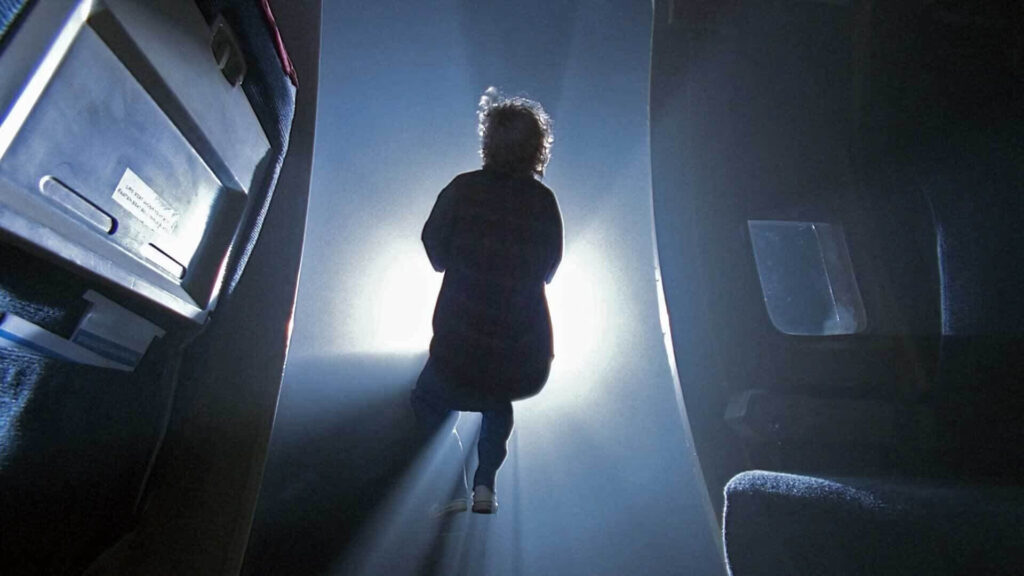
It’s an actual alien abduction episode, which are shockingly rare in the series. Before Max, Jose Chung’s ‘From Outer Space’ was the show’s definitive abduction story, and that’s a parody episode. Max Fenig returns from the first season and, while the episode does little with him, he gives the story some much needed heart. In fact, all the guest cast are playing good characters with their own little arcs that make sense, unlike most mythology episodes. The episode has one of the show’s best set pieces: a mid-air abduction from an airplane. It’s a great idea I’ve never seen before and is executed very well. The contrast between the depressurisation and people freaking out and flying out the open door with the calm, terrifying majesty of Max slowly being lifted from the plane and towards a UFO is brilliant.
Worst Standalone Episode: El Mundo Gira (S4E11)
Any episode that includes the word “exsanguinated” isn’t totally bad, but that’s pretty much the only praise I have for El Mundo Gira. The episode is an attempted parody of telenovela Mexican soap operas but I’m not sure it fully understands what a parody is. It certainly plays in that style but it doesn’t parody it, it just is it. There are no soap subversions, no clever winks, no actual jokes about it. This isn’t the first season of Twin Peaks where we would see scenes of a fictional soap opera on television sets before similar scenes then play out with interesting, purposeful changes. It’s just melodrama and tropes for 45 minutes, with constant Spanish guitar music that slowly drove me insane. Mark Snow is a talented composer but he also has the inclination to bust out the pan pipes any time an episode features a different culture than white Americans.
The soap opera stylings are at odds with the actual drama and message El Mundo Gira is trying to present. This isn’t a comedy episode. It’s trying to make a point about Mexican immigrants, their treatment and invisibility, comparing illegal aliens with extraterrestrials, while simultaneously mocking their culture through a failed parody. The episode also wastes the idea of El Chupacabra, using the name for what turns out to be a weird fungal infection. It tries to have a story-within-a-story framing device to play with character perspective but it feels under-developed. The story is told by a character who is only in a few scenes and misses much of the action, so there’s no foundation for anything she says. In that regard, El Mundo Gira is desperate to be the next Jose Chung but ends up being closer in quality to the soap operas it apes.
Best Standalone Episode: Paper Hearts (S4E10)
Four seasons in and The X-Files is still coming up with new serial killer stories that feel fresh. There’s already been so many, they are a staple of the show, and Paper Hearts manages to be one of the best. It’s an episode that finds evil in banality. Tom Noonan is excellent as a big friendly unassuming killer in the mould of Ed Kemper. His performance as John Lee Roche is so underplayed, in many ways matching Duchovny’s similar low key energy, but it really works. He’s a disturbing villain, seeming like a regular guy until he starts talking dispassionately about his horrific crimes. Roche reveals a secret that threatens to destroy Mulder’s entire belief system: one of his victims might have been Samantha Mulder.
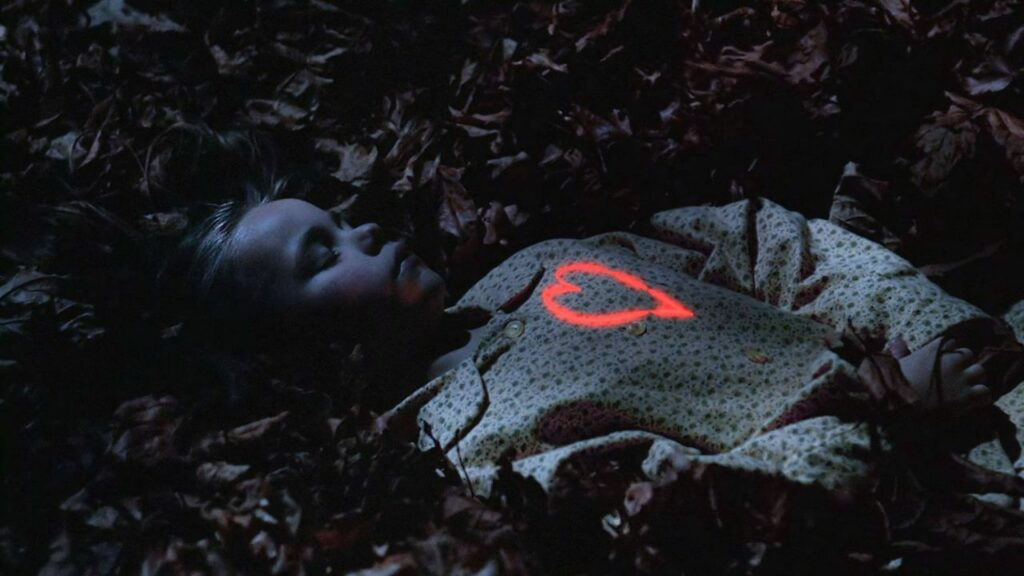
Paper Hearts is an excellent Mulder story based around a fascinating contradiction that rattles the agent deeply. Seemingly supernatural dreams reveal it wasn’t aliens who took Samantha but a human murderer; a paranormal phenomenon gives a logical answer to the question that has always driven Mulder’s belief in the supernatural. In the wake of this, just what does he believe? The story would make for a good detective thriller without this aspect, X-Files or otherwise, but this playing with Mulder’s mind takes it to the next level.
I didn’t remember much of this episode before rewatching it and I fear I may have dismissed it the first time I saw it. Of course aliens or some government conspiracy were involved in Samantha’s disappearance, that has to be the case or the show implodes. But now I love the idea of playing with this concept for an episode, to see Mulder’s world implode. Duchovny is on great form and this really does feel like his version of Beyond the Sea, without being derivative. After four seasons it’s good to check in on what still drives Mulder and how fragile his belief still is because of the unprocessed trauma it is built on. Paper Hearts is a brilliant standalone episode but also a vital part of Mulder’s arc.
Five Worst Episodes:
5. Unrequited (S4E16)
4. Demons (S4E23)
3. Teliko (S4E3)
2. Herrenvolk (S4E1)
1. El Mundo Gira (S4E11)
Five Best Episodes:
5. Small Potatoes (S4E20)
4. Leonard Betts (S4E12)
3. Musings of a Cigarette Smoking Man (S4E7)
2. Home (S4E2)
1. Paper Hearts (S4E10)
Season four of The X-Files is a strong year for the show. It’s not of the same quality as the third season but it ranks above the first two. The mythology story has grown tiresome and the tone rarely subsides from being dark and bleak, but it has highlights of great quality and, between the formulaic instalments, has some really unique episodes.
I’ll return to cover season five in the near future.




